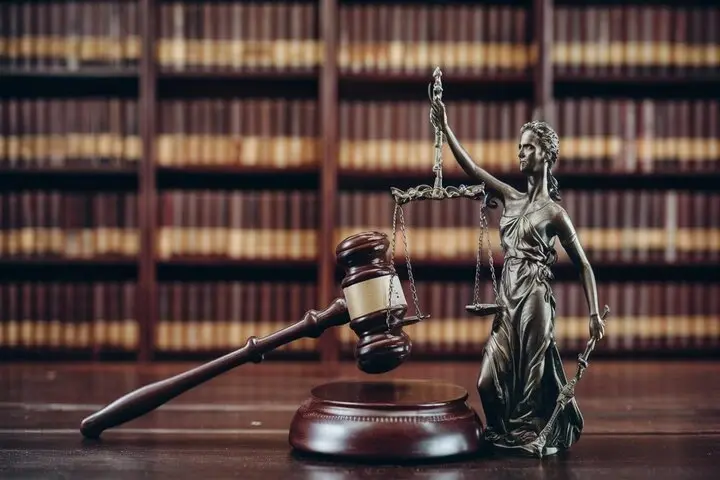-
Posted on: 25 Jul 2024

-
Dealing with inaccurate or unfair negative items on your credit report can be a frustrating and overwhelming experience. Many individuals turn to credit repair services like Lexington Law for assistance. Understanding the potential outcomes and success rates associated with these services is crucial before making a decision. This comprehensive guide explores the factors influencing Lexington Law's effectiveness, discusses what constitutes "success" in credit repair, and provides a balanced perspective on what you can realistically expect.
Understanding Lexington Law and Credit Repair
Lexington Law is a well-known and established credit repair company that aims to help consumers improve their credit reports and scores by challenging inaccurate, unverifiable, or unfair negative items. They operate by sending dispute letters to the three major credit bureaus (Equifax, Experian, and TransUnion) on behalf of their clients. These letters request the bureaus to investigate and potentially remove the disputed items.
How Lexington Law Works
- Initial Consultation: Lexington Law typically offers a free initial consultation to assess your credit situation and determine if their services are a good fit.
- Credit Report Analysis: They analyze your credit reports to identify potentially disputable negative items. This includes things like late payments, collections, charge-offs, bankruptcies, and judgments.
- Dispute Letter Generation: Lexington Law generates and sends dispute letters to the credit bureaus on your behalf. The content of these letters is based on the negative items you've identified.
- Bureau Communication: They monitor the responses from the credit bureaus and follow up as needed.
- Ongoing Monitoring and Support: Lexington Law provides ongoing monitoring of your credit reports and continues to send dispute letters as necessary.
Defining "Success" in Credit Repair
Before evaluating Lexington Law's success rate, it's important to define what "success" actually means in the context of credit repair. Success is not guaranteed, and realistic expectations are vital.
Key Metrics for Success
- Removal of Negative Items: This is the most tangible measure of success. Having inaccurate, unverifiable, or unfair negative items removed from your credit report directly improves your credit score.
- Improved Credit Score: A higher credit score reflects a more positive credit history and can lead to better interest rates on loans and credit cards, as well as easier approval for housing and other financial products.
- Accuracy of Credit Reports: Ensuring the accuracy of your credit reports is a fundamental aspect of credit health. Removing errors helps prevent unfair assessments of your creditworthiness.
- Effective Communication with Credit Bureaus: A credit repair service facilitates communication with the credit bureaus and helps ensure that your disputes are properly addressed.
Limitations of Credit Repair
It's crucial to understand that credit repair services cannot legally remove accurate negative information from your credit report. If a negative item is accurate and verifiable, it will remain on your report for the legally allowed timeframe (typically 7 years for most negative items, and 10 years for bankruptcies). Credit repair companies also cannot create a new credit identity for you or erase legitimate debts.
The Elusive "Success Rate" of Lexington Law
Lexington Law, like most credit repair companies, doesn't publish a specific, quantifiable "success rate." This is because the outcome of credit repair is highly individualized and depends on several factors that are beyond their direct control. While they often tout positive client testimonials, it's important to approach these with caution and understand the underlying influences.
Factors Influencing Credit Repair Outcomes
- Accuracy of Negative Items: If a negative item is accurate and verifiable, it's unlikely to be removed.
- Verifiability of Negative Items: Credit bureaus must verify the accuracy of disputed information within a reasonable timeframe (typically 30 days). If they cannot verify the information, they are required to remove it.
- Completeness of Documentation: Providing supporting documentation to back up your disputes can significantly increase the likelihood of success. For example, if you paid off a debt that is still showing as unpaid, providing proof of payment is crucial.
- Client Cooperation: Responding promptly to requests from Lexington Law and providing necessary information is essential for their ability to effectively represent you.
- Persistence and Follow-Up: The credit repair process often requires persistence and follow-up. Lexington Law's ability to consistently send dispute letters and monitor the responses from the credit bureaus plays a significant role.
- The Individual's Credit Profile: Someone with a few minor inaccuracies will likely see quicker results than someone with multiple significant negative items.
Why Specific Success Rates Are Difficult to Determine
The lack of a readily available, verifiable success rate from Lexington Law stems from several challenges:
- Varied Client Situations: Each client's credit history is unique, making it difficult to generalize outcomes.
- Proprietary Information: Lexington Law likely considers its dispute strategies and methods as proprietary information and may be hesitant to share details that could be used by competitors.
- Regulatory Scrutiny: Credit repair companies are subject to strict regulations by the Federal Trade Commission (FTC). Publishing misleading success rates could attract unwanted attention and potential legal action.
- Attribution Challenges: It's difficult to isolate the impact of Lexington Law's services from other factors that might influence a client's credit score, such as responsible credit behavior or the passage of time.
Alternative Ways to Gauge Lexington Law's Effectiveness
While a precise "success rate" is elusive, there are other ways to evaluate Lexington Law's potential effectiveness:
Reviews and Testimonials
Read reviews and testimonials from past and current clients. Look for patterns in the feedback. Do clients generally report positive experiences? Are there recurring complaints or concerns? Remember to consider both positive and negative reviews and assess their credibility.
Complaint Data from the Better Business Bureau (BBB) and Consumer Financial Protection Bureau (CFPB)
Check the Better Business Bureau (BBB) rating and complaint history for Lexington Law. Also, review complaints filed with the Consumer Financial Protection Bureau (CFPB). While a high volume of complaints doesn't necessarily indicate ineffectiveness, it can highlight potential issues with their services or customer service.
Compare with Other Credit Repair Services
Research and compare Lexington Law with other credit repair companies. Consider factors like pricing, services offered, customer support, and reputation. Look for companies with transparent pricing and a proven track record.
Free Consultation
Take advantage of the free initial consultation offered by Lexington Law. Ask detailed questions about their process, their experience with similar cases, and what you can realistically expect. Assess their transparency and willingness to answer your questions honestly.
Alternatives to Lexington Law
Before engaging with any credit repair service, consider exploring alternative options for improving your credit. These alternatives may be more cost-effective or better suited to your specific situation.
Do-It-Yourself (DIY) Credit Repair
You have the right to dispute inaccurate information on your credit reports yourself. This can be a cost-effective option if you are comfortable researching and writing dispute letters.
Steps for DIY Credit Repair:
- Obtain your credit reports: You are entitled to a free credit report from each of the three major credit bureaus (Equifax, Experian, and TransUnion) once per year at AnnualCreditReport.com.
- Review your credit reports carefully: Identify any inaccurate, unverifiable, or unfair negative items.
- Gather supporting documentation: Collect any documents that support your claims, such as proof of payment, court records, or correspondence with creditors.
- Write and send dispute letters: Send dispute letters to each of the credit bureaus, clearly explaining the errors and providing supporting documentation. Use certified mail with return receipt requested to ensure proof of delivery.
- Follow up with the credit bureaus: Monitor the responses from the credit bureaus and follow up if necessary.
Credit Counseling
Nonprofit credit counseling agencies offer services such as debt management plans, budgeting advice, and credit education. They can help you develop a plan to manage your debt and improve your credit. Look for agencies that are accredited by the National Foundation for Credit Counseling (NFCC).
Debt Management Plans (DMPs)
A DMP is a structured plan to repay your debts over a period of time, typically 3-5 years. Credit counseling agencies can help you enroll in a DMP and negotiate with your creditors to lower interest rates and fees.
Responsible Credit Behavior
The most effective way to improve your credit over the long term is to practice responsible credit behavior. This includes paying your bills on time, keeping your credit utilization low (below 30% of your credit limit), and avoiding applying for too much credit at once.
Conclusion: Is Lexington Law Worth It?
Ultimately, the decision of whether or not to use Lexington Law is a personal one. There's no guaranteed "success rate," and outcomes depend heavily on individual circumstances. Lexington Law can be helpful for those who find the credit repair process overwhelming or time-consuming, but it's essential to have realistic expectations. Before signing up, carefully consider the costs, the potential benefits, and the alternative options available to you.
Focus on understanding your credit reports, disputing inaccuracies, and adopting responsible credit habits. Whether you choose to use Lexington Law or pursue other avenues, proactive credit management is key to achieving your financial goals.










